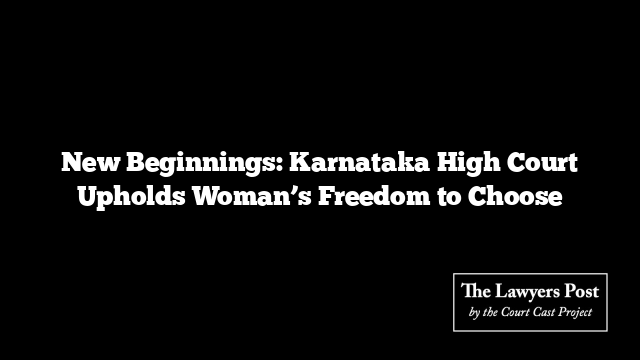In a recent ruling that echoes the changing tides of modern relationships, the Karnataka High Court has granted a Hindu woman the liberty to reside with her Muslim spouse, whom she encountered through the realms of social media.
Amidst the legal deliberation presided over by Justices S Sunil Dutt Yadav and Venkatesh Naik T, it became evident that the woman, a major in her own right, had made a conscious decision to forge her own path. She stood firm in her resolve to forego the comforts of her maternal home, choosing instead to pursue her studies and build a life with her chosen partner.
The courtroom drama unfolded against the backdrop of a habeas corpus petition filed by the woman’s mother, who sought to challenge her daughter’s newfound independence. However, the daughter’s unwavering stance, coupled with the court’s careful consideration of her circumstances, led to a landmark decision.
In alignment with established legal protocols and the guiding principles outlined by the Supreme Court, the Karnataka High Court facilitated an in-camera interaction with the woman, ensuring her autonomy and agency in the decision-making process.
Acknowledging her autonomy and independence, the court recognized her marriage, her educational pursuits, and her right to make her own life choices. Liberated from the shackles of parental authority and societal expectations, the woman embarked on a new journey, empowered by the court’s validation of her decisions.
Thus, in a poignant testament to individual freedom and the evolving landscape of relationships, the Karnataka High Court paved the way for a new chapter in the woman’s life, where love transcends barriers and personal autonomy reigns supreme.





